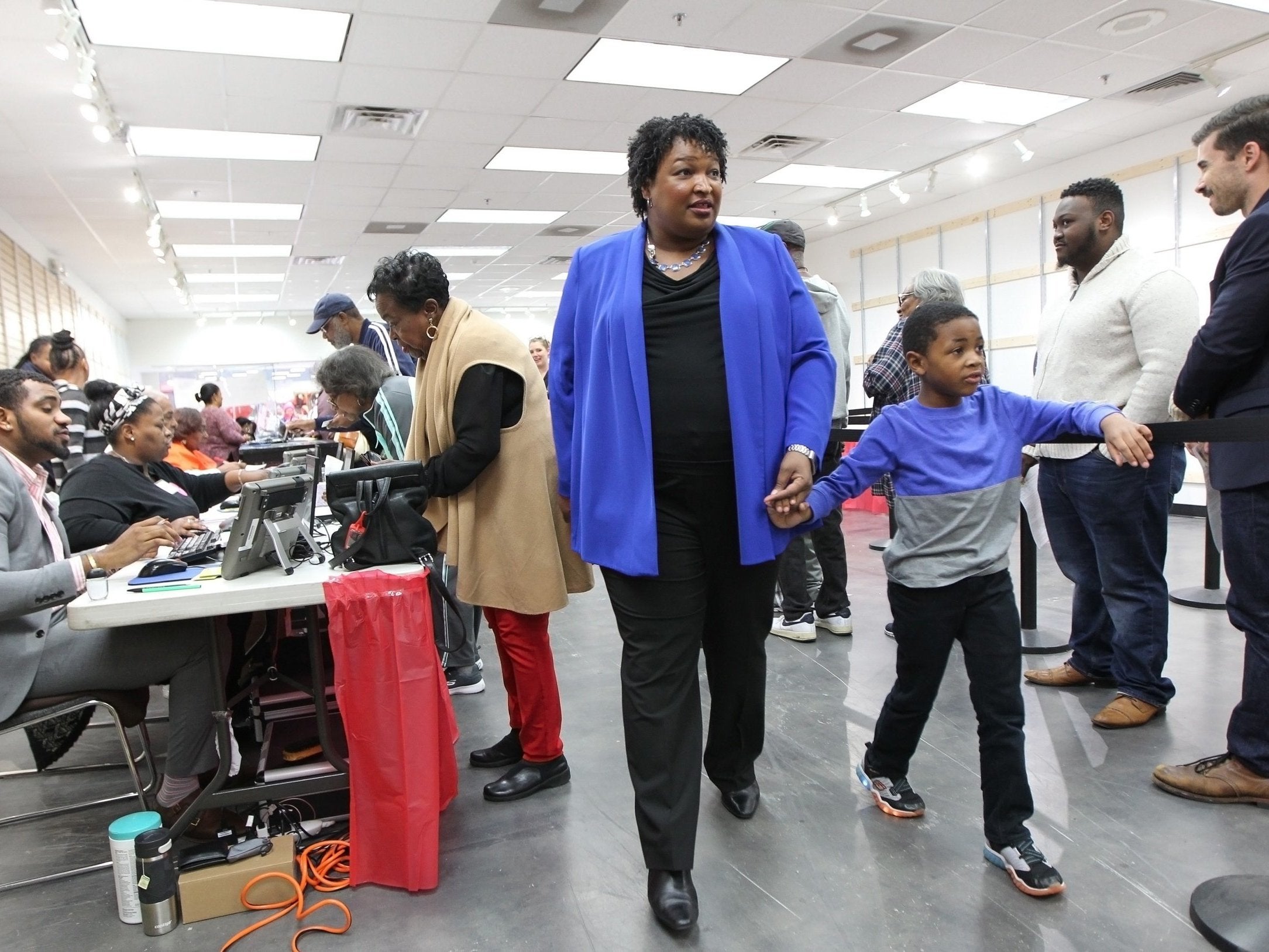If you called out Donald Trump for dismissing democracy in 2016, you should call out Stacey Abrams and Mayor Pete today
Refusing to accept democratic norms in America should be a no-no, whether you're the Republican president or a Democratic nominee


Your support helps us to tell the story
From reproductive rights to climate change to Big Tech, The Independent is on the ground when the story is developing. Whether it's investigating the financials of Elon Musk's pro-Trump PAC or producing our latest documentary, 'The A Word', which shines a light on the American women fighting for reproductive rights, we know how important it is to parse out the facts from the messaging.
At such a critical moment in US history, we need reporters on the ground. Your donation allows us to keep sending journalists to speak to both sides of the story.
The Independent is trusted by Americans across the entire political spectrum. And unlike many other quality news outlets, we choose not to lock Americans out of our reporting and analysis with paywalls. We believe quality journalism should be available to everyone, paid for by those who can afford it.
Your support makes all the difference.It seems almost a lifetime ago, but in October 2016, the then-Democratic nominee, Hillary Clinton, tweeted, "Donald Trump refused to say that he'd respect the results of this election. That's a direct threat to our democracy."
It was in response to Donald Trump claiming the election apparatus in the United States was "rigged" against him and refused to say whether or not he'd accept the results if he lost.
Not only did Hillary speak up, but the commentariat and politicians, on the left and right, were aghast that Trump would say such a thing — and with good reason. The United States prides itself on being a beacon for democracy, respected round the world for the way in which it is committed to peaceful transfers of power once the votes are in and the person on the losing side concedes to their challenger.
Apparently, at least for the Democratic politicians and the progressive commentariat, that mindset doesn't apply anymore.
Stacey Abrams says she won the 2018 Georgia gubernatorial election, yet Brian Kemp sits in the governor's mansion. What could account for this blatant discrepancy? According to Abrams, Kemp engaged in widespread voter suppression in Georgia, and that's why she lost.
The certified results show Republican Brian Kemp won the election with 50.2 per cent of the vote over Abrams' 48.8 per cent, a difference of approximately 54,000 votes. Abrams, instead of accepting the loss, refused to concede and continues to make the claim that she won.
What's worse is the chorus of Democrats, including several presidential nominees, have backed her outrageous claims. The latest is South Bend Mayor Pete Buttigieg who said Abrams "ought to be the governor of Georgia" and blamed voter suppression. Joe Biden said, "Voter suppression is the reason Stacey Abrams isn't governor right now." Senator Kamala Harris of California said, "Let's say this loud and clear: Without voter suppression, Stacey Abrams would be the governor of Georgia." Massachusetts Senator Elizabeth Warren remarked, "Massive voter suppression prevented Stacy Abrams from becoming the rightful governor of Georgia."
A closer look at the facts shows claims of voter suppression in Georgia are spurious at best, and it doesn't take much work to refute some specific allegations.
Abrams accused Brian Kemp, in his role of Secretary of State, of "purging” voter rolls, removing hundreds of thousands of people from voter registration databases. In reality, Kemp was merely following Georgia's "Use it or Lose it" law signed in 1997 by Democrat Zell Miller after it passed the Democratically controlled legislature. The law, fully compliant with the National Voter Registration Act, sends out a mailer if someone failed to vote for three years. Without a response, the voter's registration gets labeled "inactive." If a person doesn't vote in two consecutive general elections, they get removed from the rolls.
This does not, however, prevent people from voting. If an "inactive" voter shows up with identification, they can cast a ballot. Voters removed from the rolls can still cast a provisional ballot. I lived in Georgia for five years, but haven't lived there since 2017. My own voter registration is subject to these exact rules.
Abrams also said 53,000 voters couldn't cast a vote because of Georgia's "exact match" law that requires voter registration match identification. If not, the registration gets listed as "pending." Still, it doesn't prevent a person from voting. If they show up at the polls and their ID matches, they can vote. If not, they can cast a provisional ballot.
Finally, Abrams said officials have made it harder to register to vote, a claim so ludicrous that it's a wonder she could say it with a straight face. Registering to vote in Georgia is easy, and it's evident in the numbers. Nearly 7 million people are registered to vote in Georgia, the most in state history. It is one of 36 states that allows online registration. Turnout among minority voters in 2018 was at 40 per cent — a record. That's four points higher than in 2014 and 22 points higher than in 1994.
If Brian Kemp tried to suppress the vote, it was one of the most incompetent attempts to do so in the history of the republic. The bottom line is that Stacey Abrams convinced a helluva lot of people to vote for her — just not enough for her to beat Kemp.
If not accepting the results of an election is a "threat to our democracy," the fact-checkers, columnists and media hosts now have a responsibility to call out Abrams and other Democrats. Richard Hasen, an election law expert at the University of California, Irvine, said "no good evidence" exists to prove the claims of voter suppression.
It's one thing to debate the merits of various state election laws and the possible effects those laws might have on voter participation. But to conclude voter suppression cost Abrams the election doesn't hold up under scrutiny. The people in the media who reached for the fainting couch when Donald Trump said he might not accept the results of the election in 2016 should be on the front lines today, calling out Abrams and other Democrats for threatening our democracy in a very similar way.
Join our commenting forum
Join thought-provoking conversations, follow other Independent readers and see their replies
Comments